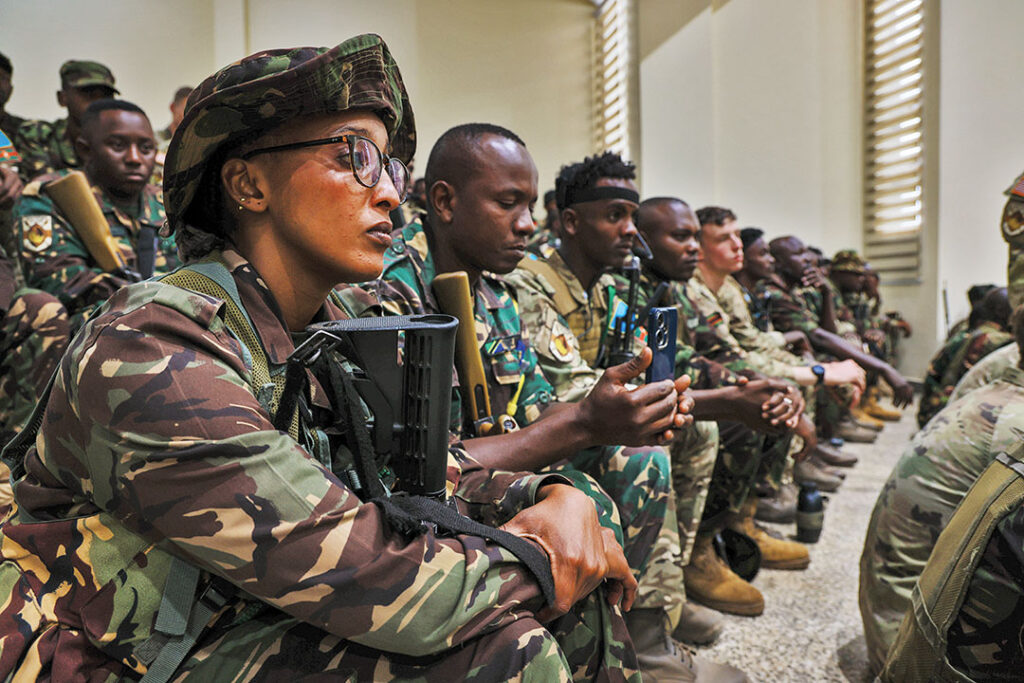In the 21st century, the age of conventional war has given way to the age of irregular warfare. Militaries still face off directly in conventional fighting, but it is far less common than irregular warfare, where the attacks are sporadic, asymmetric and hard to detect.
African military forces today are facing threats from state and nonstate groups that employ cutting-edge technology in their attacks. Cyberattacks on state infrastructure are becoming common, and the weaponization of artificial intelligence and other new technologies is on the horizon.
There is no such thing as a standard threat, so there should be no such thing as a static military response. The continent’s security forces must adapt in order to survive and win.
One pillar of being prepared for irregular threats is investing in technological readiness. Taking advantage of a young, tech-savvy generation is one way that a nation can jump-start its cybersecurity defenses and leverage existing education and skills to support a technological security sector transformation.
A second pillar is building and sustaining international, continental and regional cooperation. Irregular actors exploit isolated nations and fragmented regions. When security alliances are strong, insurgents have nowhere to hide. When alliances fracture, it becomes easier for state and nonstate actors to launch devastating attacks.
The third pillar of preparing for irregular threats is investing in professional military education. The only way to prepare the Soldiers of today for the unpredictable threats of tomorrow is to provide them with the necessary instruction. Education, including classroom study and a careerlong process that refreshes skills, is key. The best training incorporates modern technology and battlefield lessons to keep the warfighter sharp and ready to respond to new threats.
There is no blueprint for stopping irregular threats, just as there is no way to know what these threats might look like in 10 or 20 years. But some principles stand the test of time. Preparation, partnership and professionalism can help any nation’s security sector transform to meet technologically powered irregular threats.

